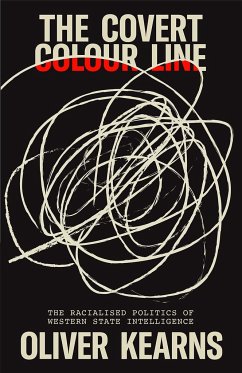Repeated intelligence failures in Iraq, Libya and across the Middle East and North Africa have left many critics searching for a smoking gun. Amidst questions of who misread - or manipulated - the intel, a fundamental truth goes unaddressed: western intelligence is not designed to understand the world. In fact, it cannot.
In The Covert Colour Line, Oliver Kearns shows how the catastrophic mistakes made by British and US intelligence services since 9/11 are underpinned by orientalist worldviews and racist assumptions forged in the crucible of Cold War-era colonial retreat. Understanding this historical context is vital to explaining why anglophone state intelligence is unable to grasp the motives and international solidarities of 'adversaries'.
Offering a new way of seeing how intelligence contributes to world inequalities, and drawing on a wealth of recently declassified materials, Kearns argues that intelligence agencies' imagination of 'non-Western' states and geopolitics fundamentally shaped British intelligence assessments which would underpin the 2003 invasion of Iraq and subsequent interventions.
In The Covert Colour Line, Oliver Kearns shows how the catastrophic mistakes made by British and US intelligence services since 9/11 are underpinned by orientalist worldviews and racist assumptions forged in the crucible of Cold War-era colonial retreat. Understanding this historical context is vital to explaining why anglophone state intelligence is unable to grasp the motives and international solidarities of 'adversaries'.
Offering a new way of seeing how intelligence contributes to world inequalities, and drawing on a wealth of recently declassified materials, Kearns argues that intelligence agencies' imagination of 'non-Western' states and geopolitics fundamentally shaped British intelligence assessments which would underpin the 2003 invasion of Iraq and subsequent interventions.








